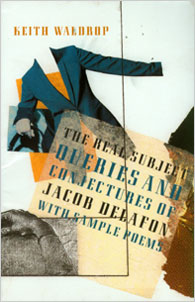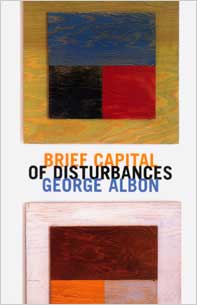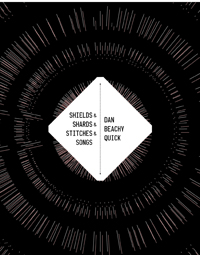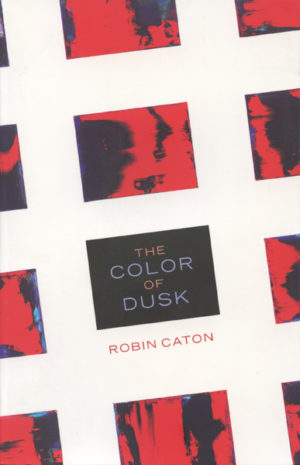Description
The Real Subject is not exactly a novel and not really a poem, though it contains some verses and is not without characters. Jacob Delafon, whose musings are here presented, is a man late in life who has gotten around-at least in his own mind-read a great deal, unsystematically, thought (with even less system) about what he has seen, heard, what he comes up against. He is, in fact, a unique geezer, whose trains of thought seem often on tracks without station or schedule. To move one to another of Jacob Delfon’s turns of mind and twisted meditations requires, not fast, but careful footwork. There is no set path. The interest is in the steps.
About the Author
Reviews
Excerpt
Keith Waldrop’s poetry titles include Hegel’s Family, The Opposite of Letting the Mind Wander: Selected Poems and a Few Songs, Shipwreck in Haven, The Balustrade, Light While There is Light, The Locality Principle, Analogies of Escape and Haunt. He is author of numerous collections of poetry and is the translator of The Selected Poems of Edmond Jabes, as well as works by Claude Royet-Journoud, Anne-Marie Albiach and Jean Grosjean. He has received fellowships from the National Endowment for the Arts and DAAD (Berlin). Since 1968 he has been co-editor and publisher of Burning Deck Press with his wife, poet and translator Rosmarie Waldrop.
Indeed, while containing elements of fiction, poetry, and essay it is hard to say that The Real Subject falls into one or the other of these modes. It is narrative, but narrative broken into small bites and stripped of many of the elements that have traditionally been seen as essential. It is a smart book, and smart enough to realize that it has nothing to prove, that it can get a lot more done by quietly claiming its territory than by trumpeting its own importance. Waldrop claims that ‘Words fail Jacob Delafon, sometimes refusing to express what he meant to say, more often by saying more than he means.’ Yet in The Real Subject, Waldrop gets as close as one possibly can get to overcoming these failings.
Brian Evenson, American Book Review, Jan/Feb 2005
Jacob Delafon reads: “To treat a fever, cut a cockchafer in two. Tape half of it to your right arm and the other half to your left.”
He wonders about this.
What, actually, is a “cockchafer”? – he finds it a disturbing term.
He looks it up. It is a “pale-brown nocturnal beetle flying with a loud whirring sound.”
All this is theoretical. Jacob has no fever.
*
Jacob Delafon reads, somewhere, that all human activity lies along two opposing vectors: the centrifugal push of paranoia and the centripetal pull of hysteria.
*
Jacob Delafon has read of a debate among doctors, as to whether nuns or prostitutes are more susceptible to hysteria.
*
Jacob Delafon locates the word ortheopy, meaning the “correct pronunciation of words.” The word seems to him unpronounceable.
*
Jacob Delafon, noting that Parsifal (like his cousin Lancelot) is a descendant of Joseph of Arimathea who, in turn, is of the House of David – in short, that Parsifal is a Jew – wonders if Wagner was aware of this.
*
WHIR
Do not alarm yourself, I
could not rest content with
moral lectures and continual
repetition
like the solar system, I
could not hold my head up, made
endlessly to
glow
destined for grand ceremonies, I
was much affected by finding myself so
thin and so worn
down
(we use theory
to mean it is possible to
choose, e.g., why I am just the
size I am)
a million million, a
cool and mortifying manner – what
governs
motions
*
Jacob Delafon reads A la recherché du temps perdu.
In the last pages of the last volume, he finds the Past has been recaptured. The teeming World (i.e., the Novel) is now reduced to a single Character.
This must be, Jacob considers, hysteria’s major text.
*
Jacob Delafon is surprised to read of ancient astronomers who “defied Time.”
Later, he realizes it is a misprint for deified.
*
Time is something Jacob Delafon would prefer not to think about. But it does disturb him that while time seems – moving image of eternity – to slide around him somehow on its way somewhere else, at the same time (“Time,” he mutters, “there it is again”), appears also completely at rest, standing absolutely still, while he himself plunges, or is plunged, through it.




